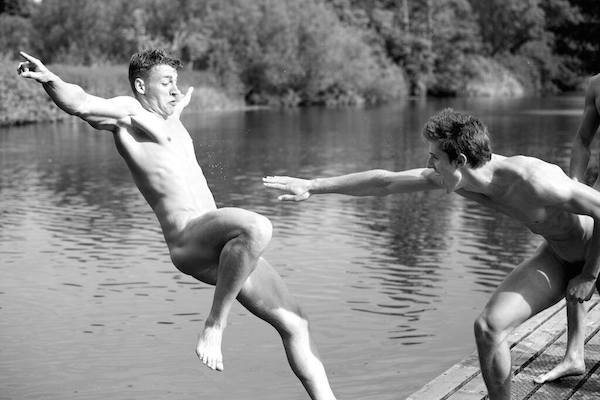As we often explore on Dear Sports Fan, sports can be a reflection of social change or a harbinger of social change. Sports has its own culture, with progressive and traditional elements. Then there are the sports games themselves; the tactics of sports that evolve competitively. This week, three stories popped up that examine change within sports.
One of my favorite parts of writing Dear Sports Fan is reading other great writers cover sports in a way that’s accessible and compelling for the whole spectrum from super-fans to lay people. Here are selections from the best articles of the last week on the subject of change:
This fall has been a tense time for gender issues within sports. I think it’s also been a productive season for gender issues in sports. One challenge, examined in this article, is that only so much progress can be made while key echo chambers are so dominated by a single gender.
Why Are All My Twitter Followers Men?
by Wendy Thurm for Think Progress
I’m a sports fan and a baseball writer and I love the idea that American women care about sports nearly as much as American men do. But there are other numbers that tell us that while women might identify as fans of a particular sport or team, they don’t always engage with that team or that sport with the same level of energy we see from men.
For all the advances for women to play sports, there’s been very little change in the landscape for women covering sports… most sports shows still feature white male non-athlete reporters coupled with former players.
Which brings us back to social media. Despite the idea that new platforms have opened all sorts of discussions, including those about sports, to new audiences and participants, the divide between women and men looks remarkably similar to the one in traditional media… This is important because Twitter isn’t just part of the national sports discussion. It often drives the national sports discussion.
Here’s something I’ve long wondered. Why are positions so fixed in football? Why not put two quarterbacks on the field at once? Or, as Hawaii has done, a punter who can punt with either foot, throw, or run with the ball?
Meet Hawaii’s Scott Harding, the Most Interesting Man in College Football
by Michael Weinreb for Grantland
He was born in Australia, and he played Australian rules football for six years, five of them with his hometown Brisbane Lions. He grew up with the National Football League on his television set, a faraway curiosity that many Australians adore but most only partially comprehend. Watching the NFL and recognizing its broad outlines, Harding thought to himself, I have that kind of skill set.
Harding is a natural righty, but says he’s equally comfortable kicking with either foot, in part because the Australian game requires that sort of ambidexterity. Depending on the side of the field and the hashmark Hawaii finds itself on during a fourth down, Harding can either roll to his left and boot it left-footed, or move to his right and kick it right-footed. There is also the constant threat of a fake, because, in addition to executing pre-planned fakes off certain sets, Harding is adept enough as a runner that Demarest gives him a constant green light to take off. Because Harding is not averse to contact — the hits he takes almost feel muted, he says, after all of those years playing Australian football without pads — he winds up holding the ball until the last possible second so the kick coverage team can get downfield. He’s yet to have a punt blocked. His gross average is 41.8 yards and his net average is 41.1; opponents have managed a total of 30 punt return yards against him the entire season, a measly .41 yards per punt.
Every so often you hear about a sports team that poses naked to raise money. This is always fun because, who better to pose naked than fit, strong athletes? Plus there’s enjoyment in seeing some of the conventions of ultra-masculine (women’s teams have more nuanced stereotypes) groups of men getting naked with each other. One rowing team in England took things a step farther in awesomeness, when, after finding out that their calendars were mostly popular with gay men, decided to create a LGBT charity and donate a portion of their earnings from their calendar to it.
Team Calendar Makes A Splash To Fight Homophobia
by Ron Dicker for the Huffington Post
The U.K. squad has been producing a nude datebook fundraiser since 2009. When it discovered that much of its audience was gay, the team figured it should direct its charity toward the LGBT community, according to a video released to promote the new calendar. So the team has helped established a charity called Sport Allies, “a programme to reach out to young people challenged by bullying, homophobia or low self-esteem,” per the Warwick Rowers website.

